November Policy Updates: Area Budget Formulation Underway, Medicaid Unwinding Webinar
Happy Native American Heritage Month!
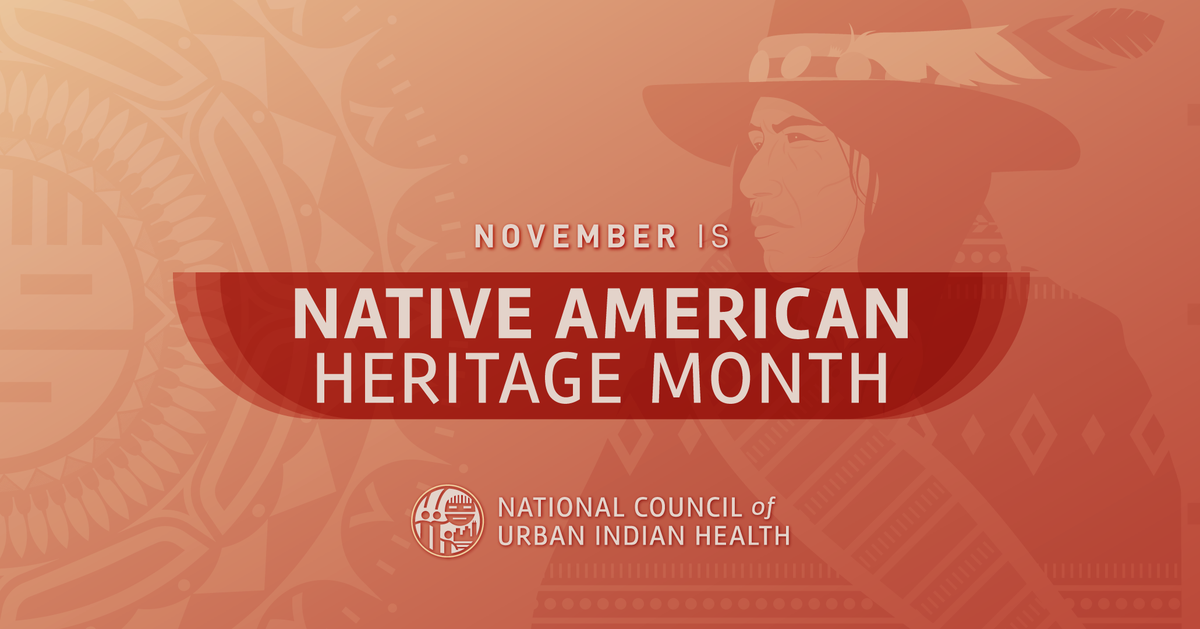
In This Edition: Congress has passed its short-term funding bill, conference season is underway, and many more developments in urban Native health policy.

Why it matters: Native American Heritage Month serves as a reminder of the resilience and strength of Indigenous communities throughout history. The National Council of Urban Indian Health (NCUIH) channels this spirit into advocacy efforts aimed at influencing policies that impact the health and wellness of urban Indians. By actively engaging with policymakers, stakeholders, and partners, we strive to create an environment where health policies are inclusive and considerate of the unique challenges urban populations face. Read more about our policy priorities here.
Our thought bubble: Together, let us honor the resilience and contributions of Native American communities by continuing to advocate for their health and well-being.
Crisis Averted: President Biden to Sign Temporary Spending Bill to Fund U.S. Government Into the New Year
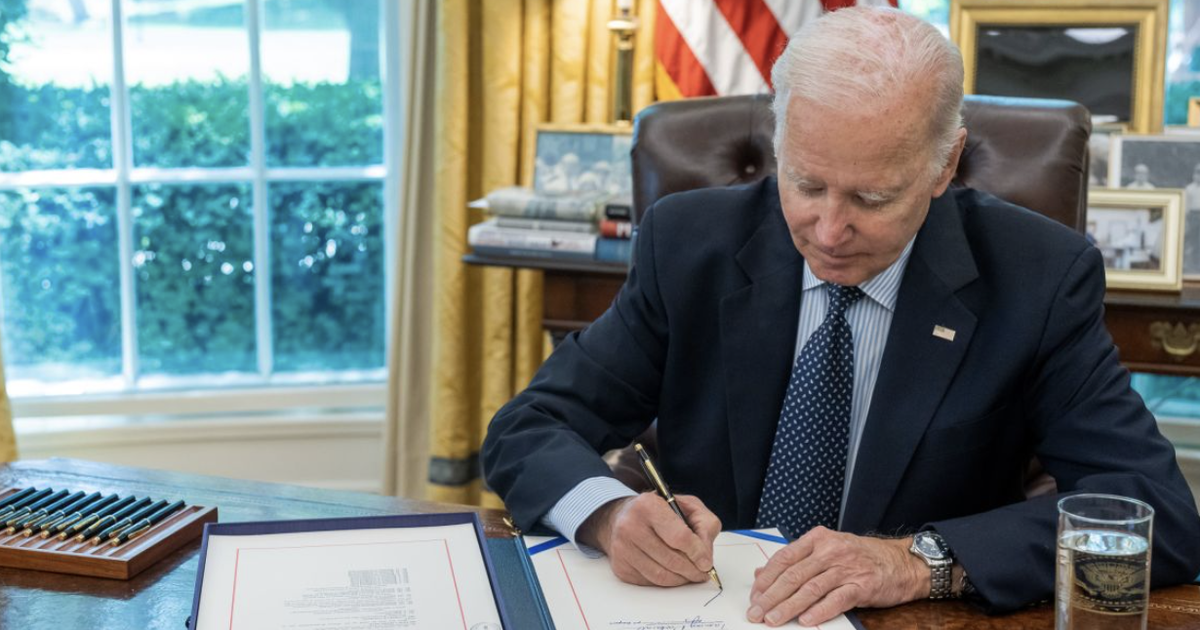
On November 15, 2023, a full government shutdown was averted when Congress passed a two-tiered Continuing Resolution (CR) serving as a stopgap spending measure. The CR was signed into law by President Biden on November 16, 2023.
What is included: The CR includes two funding deadlines for the twelve appropriations accounts, January 19 and February 2.
The bottom line: Last year, Congress authorized $5.13 billion in advanced appropriations for IHS, insulating the majority of IHS programs from the worst effects of a government shutdown.
Go deeper: The CR re-authorized the Special Diabetes Program for Indians (SDPI) until January 19th at $25.89 million, and funds IHS accounts not receiving advanced appropriations at FY23 levels through February 2nd.
Did you know?: President Biden requested $250 million for IHS in emergency supplemental funding in response to the current opioid epidemic. Congress has not included this funding in this CR.
Moving Forward: Congress will continue negotiating a final spending bill during this time and NCUIH will monitor for updates.
Policy Webinar: Medicaid Unwinding for Urban Indian Organizations

Join NCUIH for a webinar on Medicaid Unwinding for UIOs where we will provide an overview on Medicaid unwinding, updates on our partnership efforts and the effect this work has the urban Native community. We will also discuss best practices and share updates on changes around the unwinding.
Federal Updates: Prep Session for Budget Formulation, CMS Application
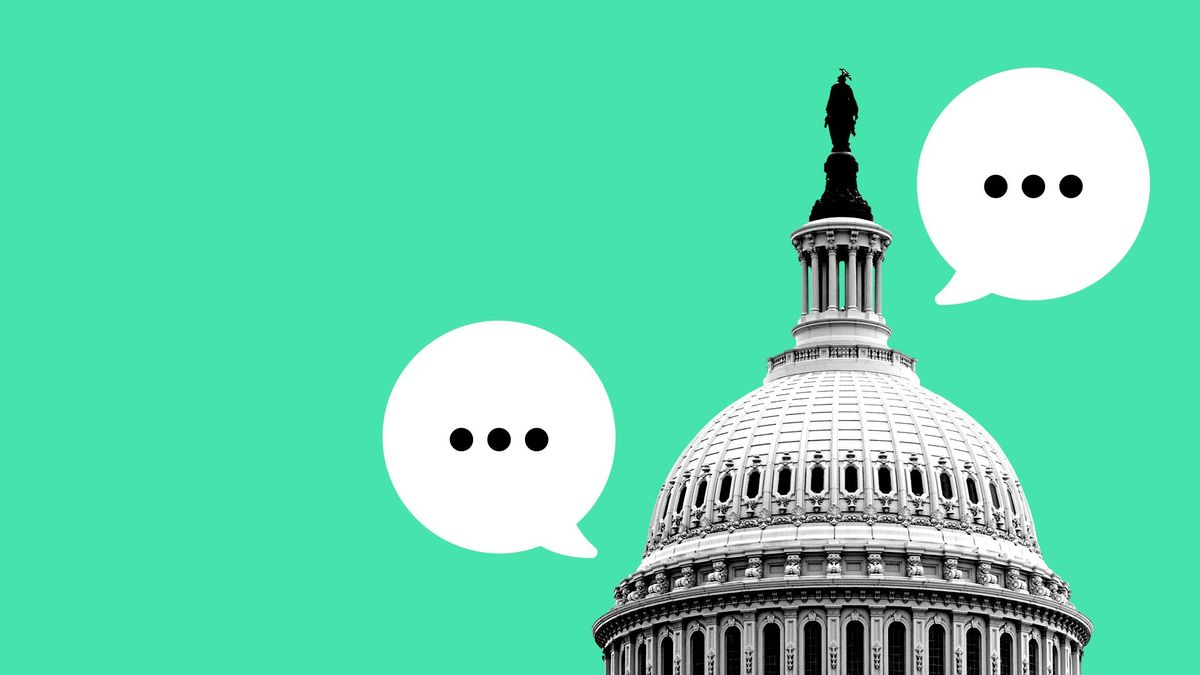
ICYMI: On November 7, NCUIH held a Prep Session for IHS Budget Formulation. NCUIH provided a PowerPoint template and suggested Talking Points for UIO leaders to use during their IHS Area Budget Formulation meetings.
-
UIOs may email policy@ncuih.org to request a copy of the template and talking points, and to set up a 1:1 session to discuss directly.
CMS Releases New Resources for ‘Making Care Primary Model’ Application – Available in 6 States with UIOs
-
CMS has released a user-friendly Application Manual for the Making Care Primary (MCP) Model, supporting user registration, portal navigation, and application submission.
-
The 10.5-year model, launching on July 1, 2024, aims to enhance care management and coordination, empower primary care clinicians, and address health-related social needs.
-
CMS, collaborating with State Medicaid Agencies in CO, NC, NJ, NM, NY, MN, MA, and WA, invites organizations to apply for the model, fostering full care transformation across payers.
-
Applications, due by November 30, 11:59 PM, can be initiated early for tailored support.
-
For details, visit the Request for Applications (RFA) or contact MCP@cms.hhs.gov.”
Upcoming Events and Important Dates including Area Budget Formulation Meetings

Upcoming events and important dates:
-
Nov 28– IHS Portland Area Budget Formulation Meeting
-
Nov 28-29 – HHS Secretary’s Tribal Advisory Committee (STAC) in Washington, DC
-
Nov 30 – IHS National Tribal Advisory Committee (NTAC) Quarterly Meeting
-
Der 5– IHS Phoenix Area Budget Formulation Meeting
-
Dec 5-6 – Tribal Leaders Diabetes Committee Quarterly Meeting in-person in Portland, Oregon and virtual
-
Dec 6-7 – White House Tribal Nations Summit
-
Dec 11-12 – Department of Interior Self-Governance Advisory Committee Meeting
-
Dec 12– IHS Alaska Area Budget Formulation Meeting
-
Dec 13– IHS California Area Budget Formulation Meeting
-
Dec 13, 11:00 am – 5:30 pm EST- IHS Virtual Health Information Technology Modernization Summit (Register)
Go deeper: The Indian Health Service Virtual Health Information Technology Modernization Summit on December 13, 2023 is an opportunity for Tribal and UIO leaders to learn more about the new Electronic Health Record (EHR) and engage in robust and meaningful conversations with the IHS on important issues impacting Tribal and urban Indian communities as a result of the HIT Modernization program. During the Virtual Summit, IHS will host a caucus allowing Tribal and UIO leaders the opportunity to independently exchange viewpoints and share information. View the Virtual Summit Agenda here.
NCUIH in Action: NCAI 80th Annual Convention & Marketplace, FedBar Presentation
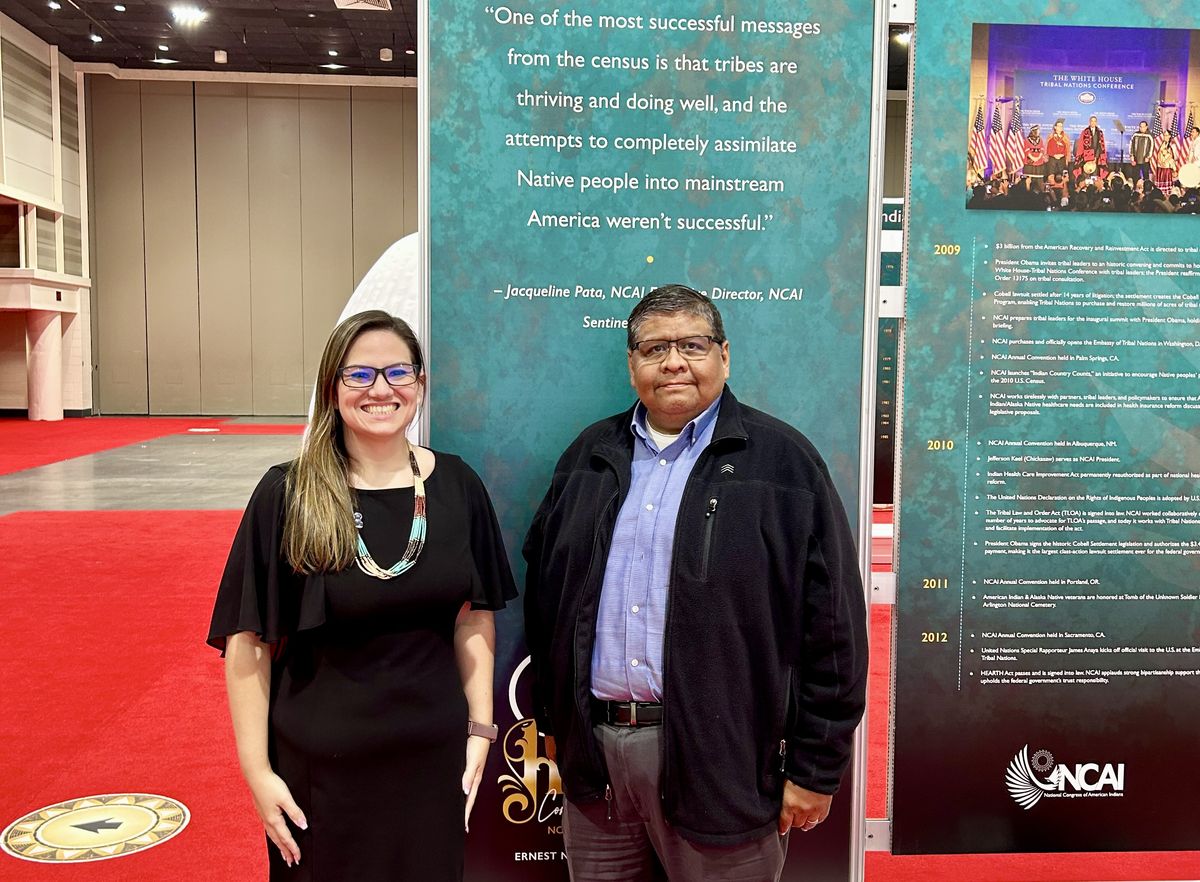
Pictured: Francys Crevier, JD (Algonquin) NCUIH CEO and Walter Murillo (Choctaw) NCUIH Board President-Elect
NCUIH leadership participated in the 80th Annual Convention & Marketplace in New Orleans, Lousiana, emphasizing our commitment to advancing Indigenous health initiatives.
The big picture: NCAI elections were held for the new 2023-2025 Executive Committee: Mark Macarro, Chairman of Pechanga Band of Luiseño Indians – President; Brian Weeden, Chairman of the Mashpee Wampanoag Tribe – Vice President; Nickolaus D. Lewis, Lummi Nation Council Member – Recording Secretary; David Woerz, Chickasaw Nation Legislator – Treasurer.
One big thing: On November 3rd, NCUIH CEO Francys Crevier (Algonquin), JD, presented at the Federal Bar DC Indian Law Conference on “The Fight for Equity in Indian Country.” In her speech, she highlighted how important full, stable funding is for Indian health.
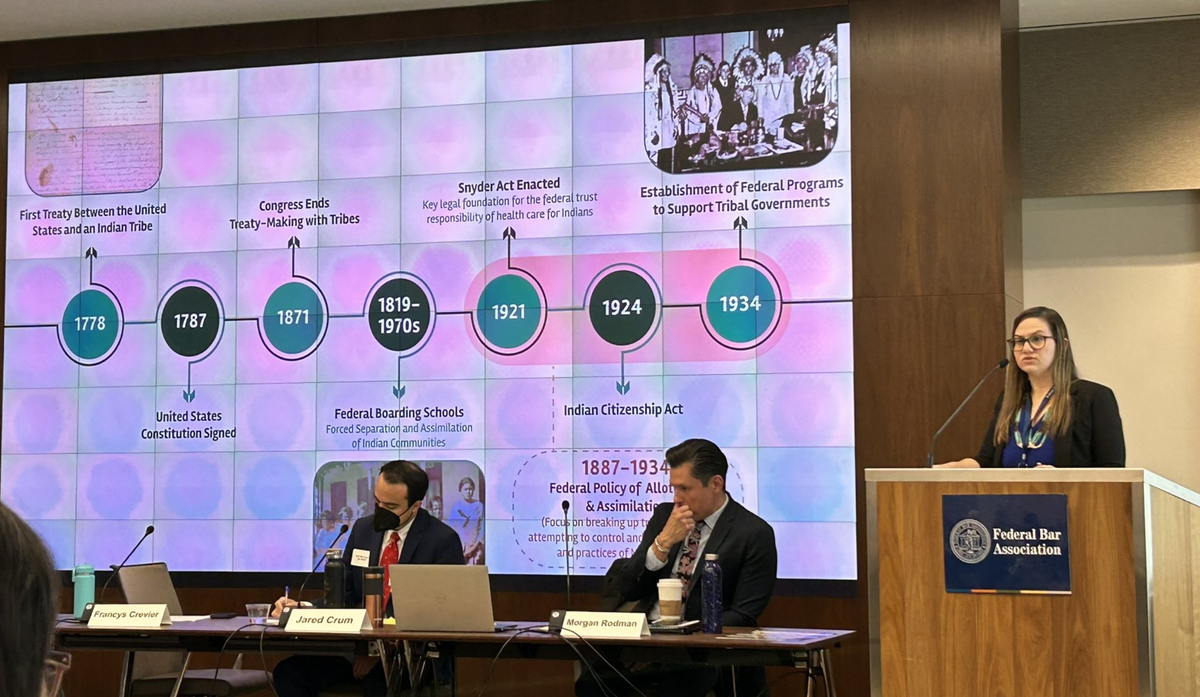
NCUIH CEO Francys Crevier (Algonquin), JD presents at Federal Bar DC Indian Law Conference.
Honoring Native Veterans: Bakersfield American Indian Health Project Organizes California’s First-Ever All Native American Honor Flight to Washington, DC
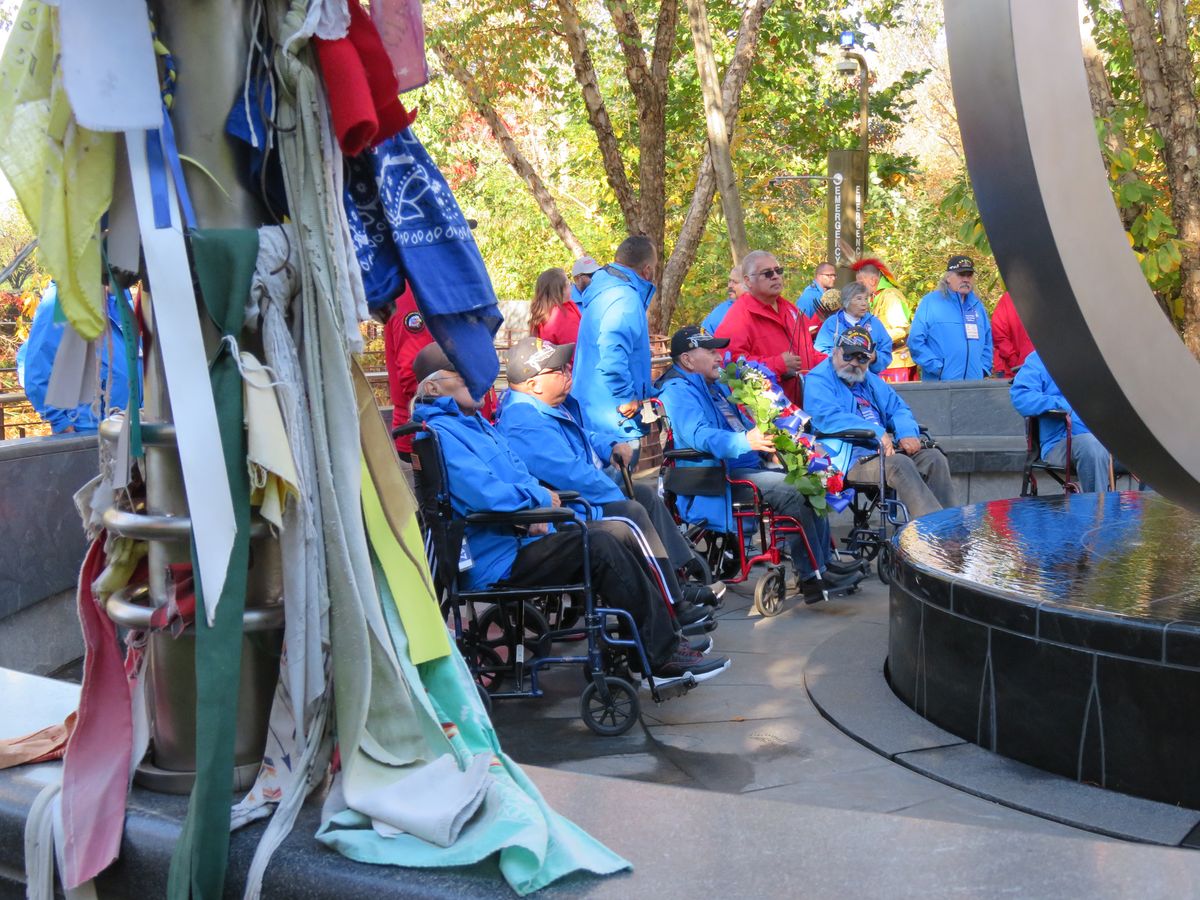
Pictured: Individuals wearing blue coats signify Native veterans who have served in the military.
On November 3, 2023, Native Veterans gathered at the National Native American Veterans Memorial in Washington as part of Kern County Honor Flight #48, California’s first Honor Flight made up of all Native American Veterans.
Go deeper: NCUIH member organization, Bakersfield American Indian Health Project, helped to organize this important trip. CEO, Angel Galvez (Tarasco and Purepecha), and BAIHP Board Secretary, Laura Juarez (Comanche) chaperoned Native Veterans from Kern County Honor Flight and participated in the Kern Country Honor Flight to honor their relatives who served in the Korean War.
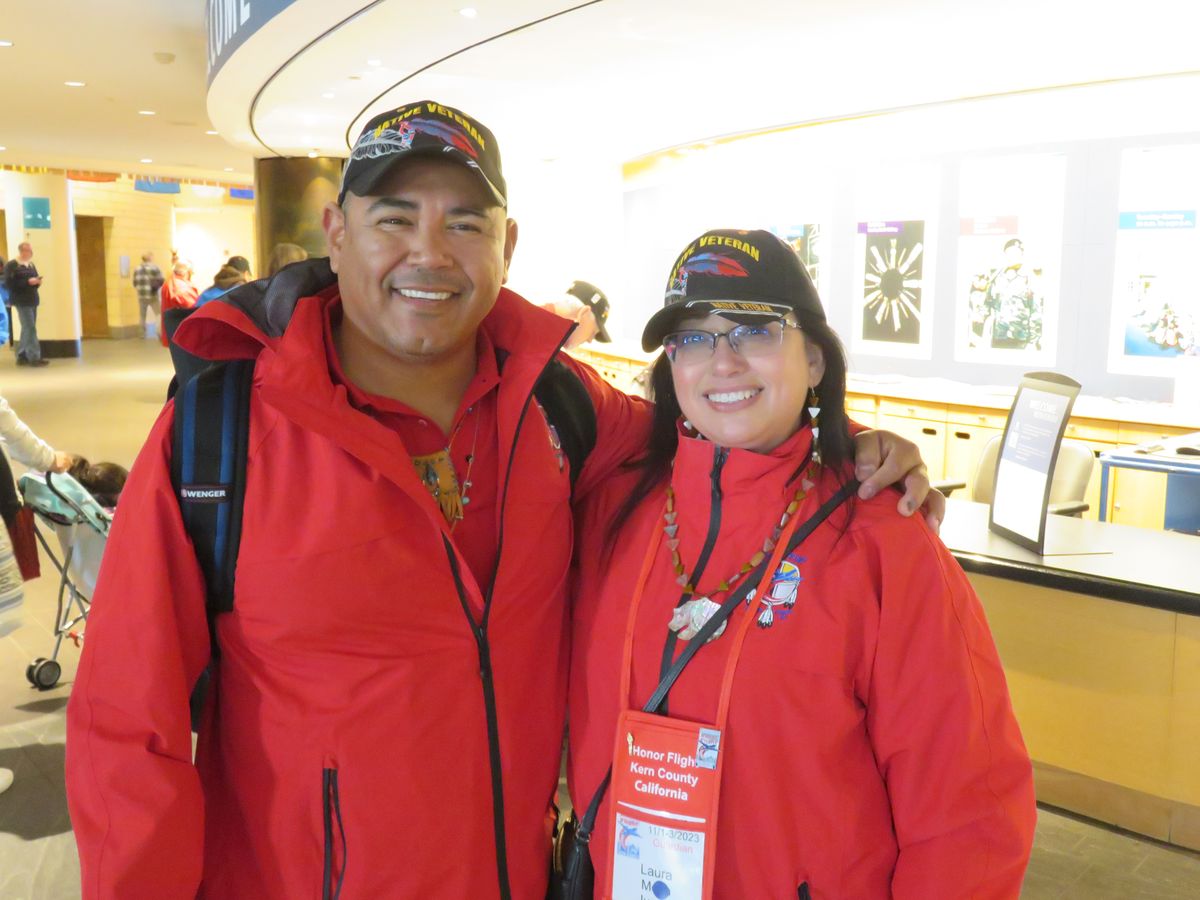
L to R: Bakersfield American Indian Health Project (BAIHP) CEO, Angel Galvez (Tarasco and Purepecha), and BAIHP Board Laura Juarez (Comanche)
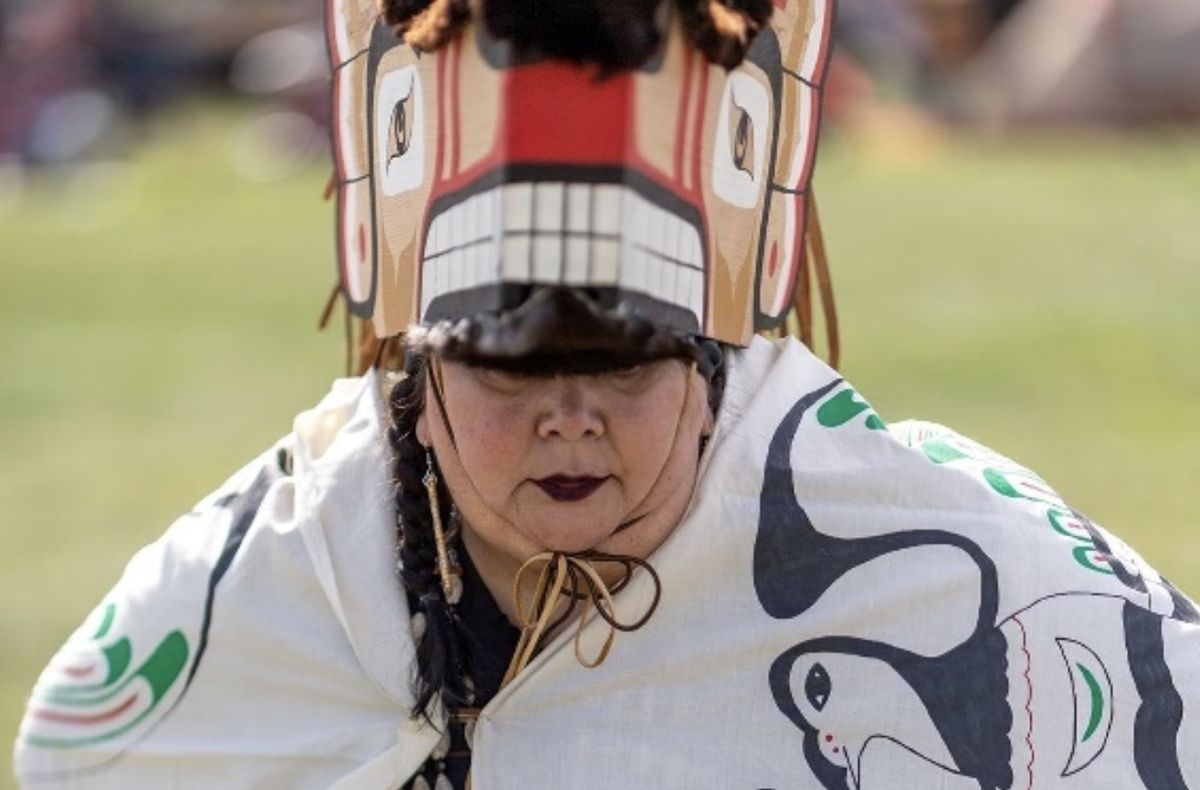
Army Veteran Sonya Tetnowski (Makah), NCUIH Board President and CEO of Indian Health Center of Santa Clara Valley
NCUIH would like to acknowledge the service of Sonya Tetnowski, NCUIH Board President and CEO of the Indian Health Center of Santa Clara Valley who served as an Army Paratrooper. Ms. Tetnowski also currently serves as a member of the Department of Veterans Affairs Advisory Committee on Tribal and Indian Affairs.
The bottom line: NCUIH honors all those who have served, especially the invaluable contributions of Native Veterans who have historically served at the highest rates among all Americans. We extend our deepest gratitude to Native Veterans and all Veterans for their selfless service and dedication to preserving the freedoms we hold dear.
Vice President Harris Applauds Urban Indian Organization, NATIVE HEALTH, as First Pilot Site for Indian Health Service Voter Registration Program
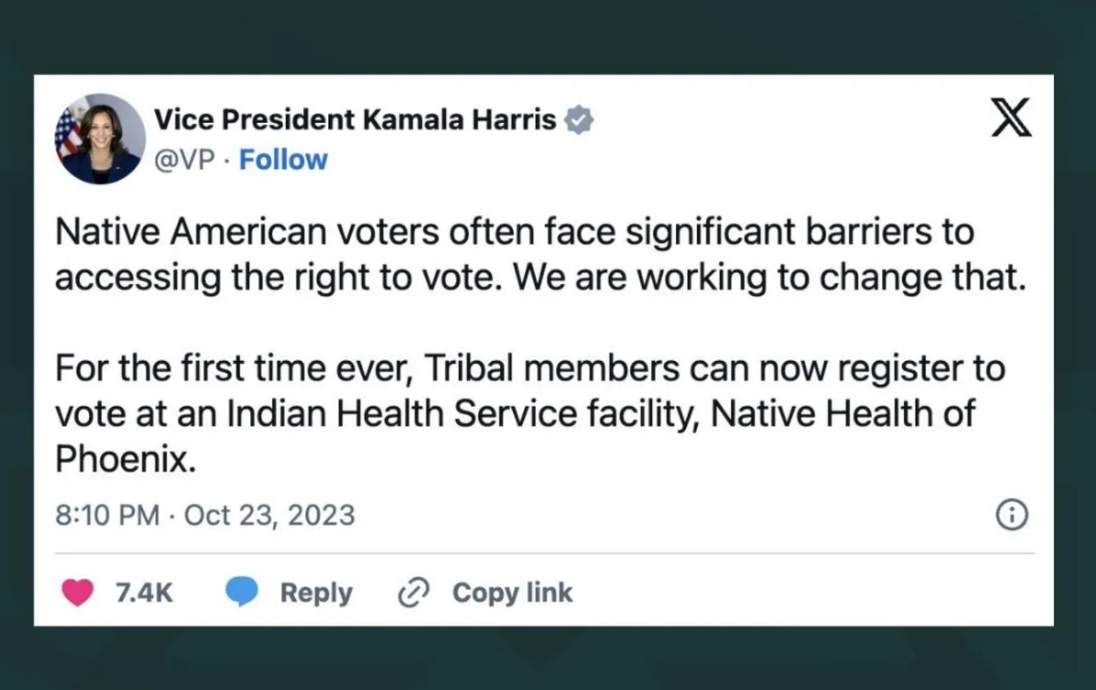
On March 5, 2023, President Biden announced agency actions to make the voting process more accessible in alignment with recommendations made by the Native American Rights Fund (NARF). This included a new initiative at the Indian Health Service (IHS) piloting “high-quality voter registration services across five different IHS facilities before the end of 2023”.
On October 23, 2023, Vice President Kamala Harris announced that the first facility under this pilot program will be NATIVE HEALTH, located in Phoenix, Arizona.
Did you know? Voting as a Social Determinant of Health has been acknowledged by the American Medical Association (AMA), and was included in their resolution from 2022, “Support for Safe and Equitable Access to Voting.”
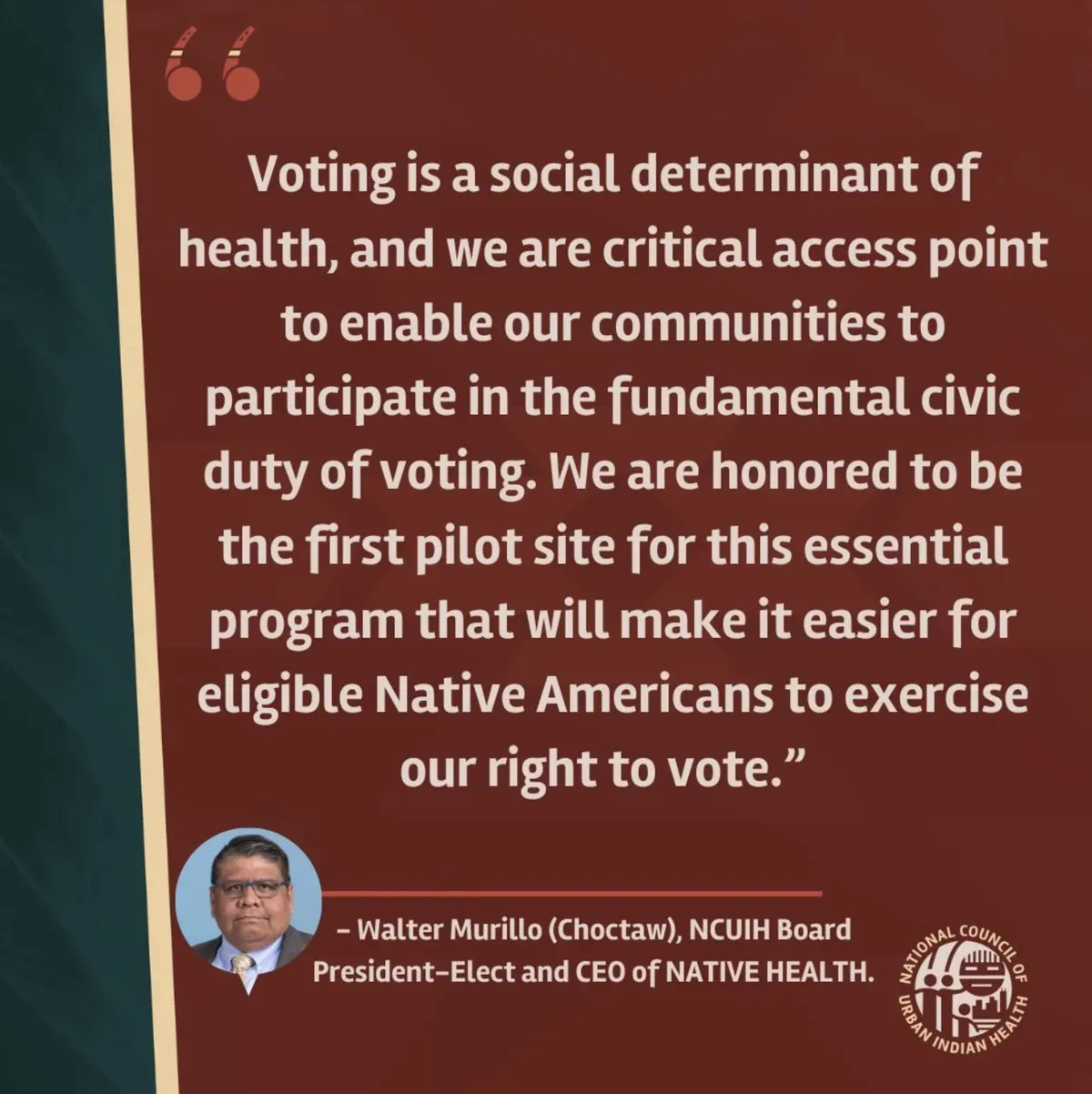
NCUIH Welcomes Not Invisible Act Commission Report to Congress and Administration
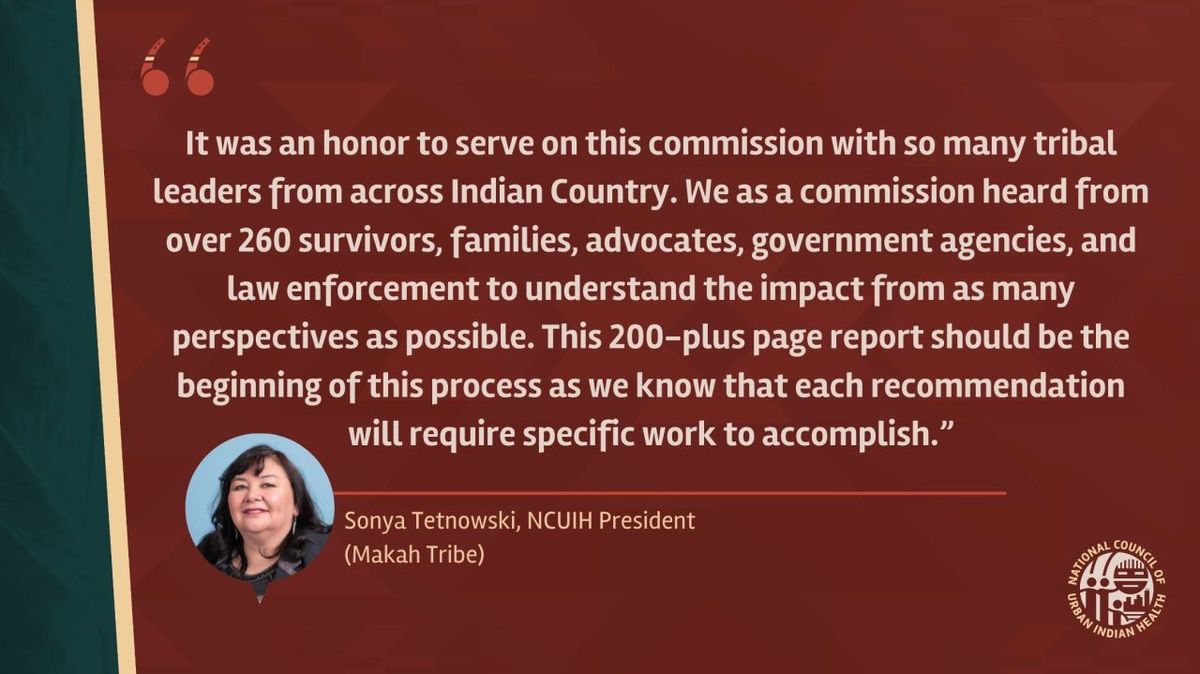
At the start of National Native American Heritage Month, the Not Invisible Act Commission released its report entitled “Not One More” urging Congress and the Biden Administration to take immediate action to address the related crises of Missing and Murdered Indigenous Persons (MMIP) and human trafficking of Indigenous persons (HT).
Did you know?: NCUIH endorsed and advocated for the passage of the legislation that created the Commission and NCUIH’s Board President, Sonya Tetnowski (Makah), served on the Commission.
What they’re saying: “It was an honor to serve on this commission with so many tribal leaders from across Indian Country. We as a commission heard from over 260 survivors, families, advocates, government agencies, and law enforcement to understand the impact from as many perspectives as possible. This 200-plus page report should be the beginning of this process as we know that each recommendation will require specific work to accomplish,” said Ms. Tetnowski.
Why it matters: The Commission’s report is a resounding call to the United States to fulfill its trust responsibility to American Indians and Alaska Natives and address the public health and public safety in Native communities caused by centuries of policies designed to attack Tribal Nations and Native ways of living.
What else: The Commission specifically recognized the impact of federal policies on Native people living in urban areas, highlighting the testimony of one witness who told the Commission “We can’t forget the urban relocation programs in the 50s; I hope this Commission doesn’t forget those relatives that are living off rez.”
What’s next: The Not Invisible Act requires the Secretary of the Interior and the Attorney General to make publicly available and submit a written response to the recommendations within 90 days to the Commission and Congress.
New Report Estimates 400,000 Native Americans Terminated from Medicaid During Unwinding
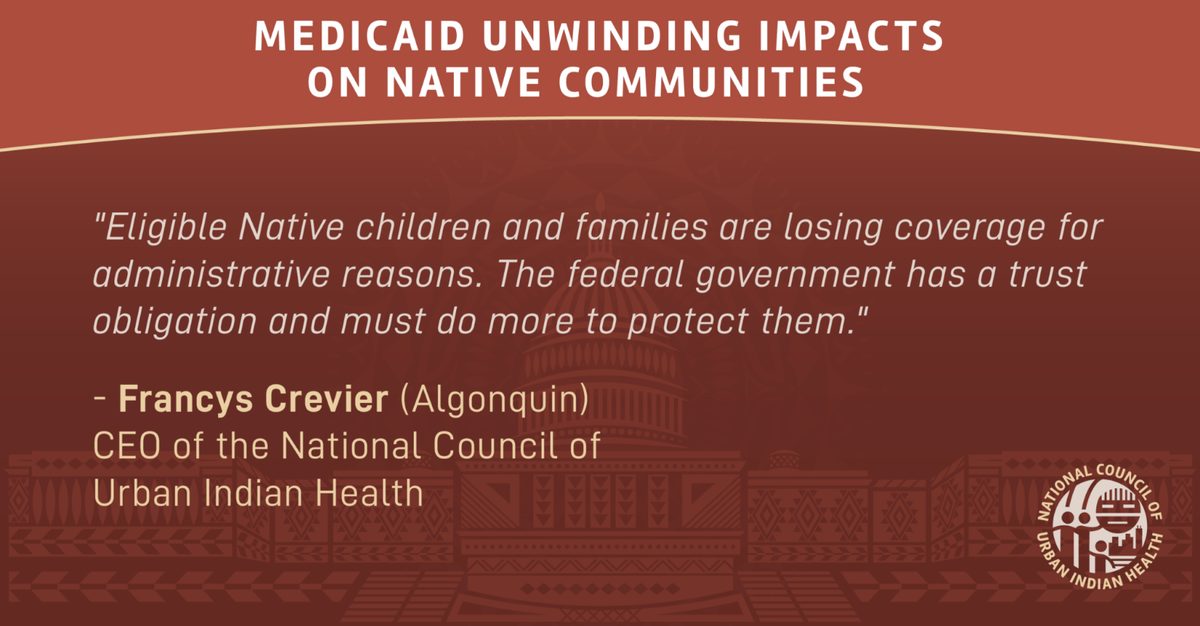
The report is co-authored by the Asian and Pacific Islander American Health Forum, the Leadership Conference on Civil and Human Rights, NAACP, the National Council of Negro Women, the National Council of Urban Indian Health, the National Urban League, the Southern Poverty Law Center Action Fund, UnidosUS, the Coalition on Human Needs, and Protect Our Care.
NCUIH Joined 8 Organizations in Issuing Report on Impacts of Medicaid Terminations
Five Key Findings from the Report:
-
Medicaid losses during six months of unwinding already exceed history’s greatest two-year drop in Medicaid enrollment.
-
States have terminated Medicaid for 10 million people, causing grave harm, especially in communities of color. This includes an estimate of more than 400,000 Native Americans.
-
More than 70% of the people terminated from Medicaid may have been eligible.
-
The depth of Medicaid loss varies by state, to an extraordinary degree.
-
The states with the highest termination rates have not made the investments needed to operate functional Medicaid systems.
Our thought bubble: “The report highlights the disproportionate impact Medicaid unwinding is having on Native communities,” said Francys Crevier (Algonquin), NCUIH CEO. “Medicaid and CHIP coverage are critical to fulfilling the United States’ trust responsibility to maintain and improve Native health, as inadequate insurance coverage is a significant barrier to healthcare access for Native people. Eligible Native children and families are losing coverage for administrative reasons and the federal government has a trust obligation and must do more to protect them.”
One last thing, check out these upcoming funding opportunities:
-
Healthy Start Initiative – Eliminating Disparities in Perinatal Health (Health Resources & Services Administration)
– Deadline: December 15, 2023 (Apply)
-
Maternal and Child Health – Improving Oral Health Integration Demonstration Projects (Health Resources & Services Administration)
– Deadline: January 22, 2024 (Apply)
-
Youth Homelessness System Improvement (Department of Housing and Urban Development)
– Deadline: February 15, 2024 (Apply)




